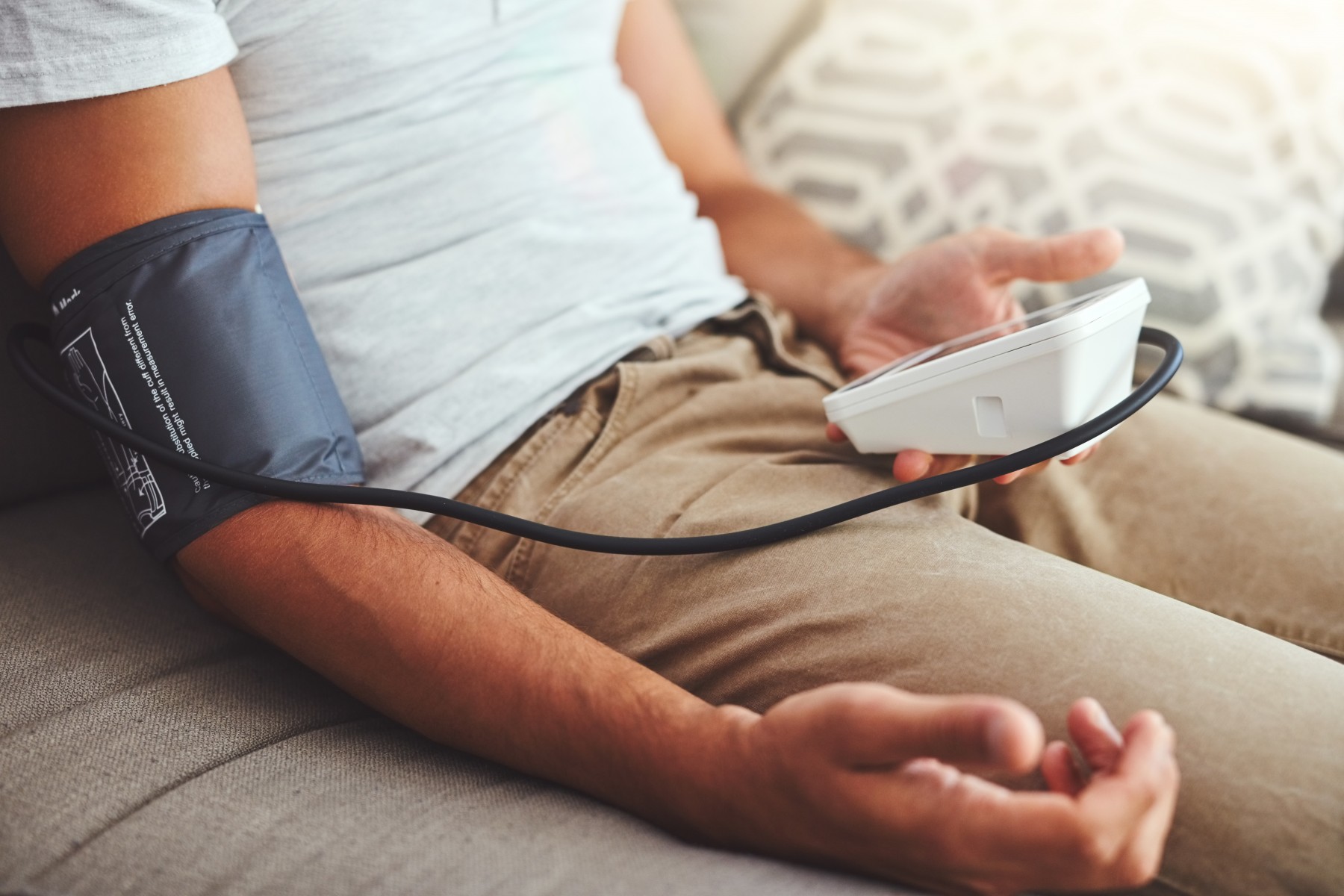 Dr. Shaunda Kelly
Dr. Shaunda KellyThe leading causes of death in the United States (U.S.) are heart disease and strokes. Having high blood pressure—which affects about half of the adults in the U.S.—raises your risk of both. MedShadow reached out to Randell Wexler, MD, a primary care physician specializing in blood pressure control at the Ohio State University Wexner Medical Center, to talk about what you need to know about measuring blood pressure and the habits and medications that can change your arterial pressure.
Browse This Article
Q: Let’s start with the basics. What is hypertension? What do those numbers represent?
A: Blood pressure is the amount of pressure that your blood exerts against your blood vessels.
“Systolic blood pressure, that’s the number everybody talks about and focuses on,” says Wexler, “is when your heart contracts. The diastolic blood pressure is actually a little more labile, and that’s when your heart relaxes or is filling up.” The top number in your blood pressure reading is your systolic blood pressure and the bottom number is the diastolic. It’s measured in millimeters of mercury (mm Hg), a unit of pressure.
Q: Why should we care about blood pressure?
A: “Cardiovascular disease (CVD) is the number one killer in the world,” says Wexler, “and the number one controllable risk factor [of CVD] is blood pressure.”
But it isn’t just heart disease. Wexler also noted that if your blood pressure stays elevated over time, it can cause damage to other organs like your kidney, brain, and even eyes.
“I have patients where their optometrist or ophthalmologist sent them in because they have vascular changes in the retina when they go in for their eye exam,” says Wexler.
He adds that it can be difficult to get patients to focus on their blood pressure because, until it starts damaging your organs, it doesn’t cause any symptoms. You’ll feel fine even if your blood pressure is elevated.
Q: How has the way we think about blood pressure changed over time?
A: Wexler started practicing medicine about 35 years ago. Back then, he says, elevated blood pressure was considered a sign of normal aging.
“If someone in their 80s had a blood pressure of 165 mm Hg over 90, we didn’t do a whole lot.”
More recently, he says research has shown that the higher your systolic blood pressure, the higher your risk for heart attack, stroke, kidney disease, and other organ damage. Still, he explains that not all experts agree on what the ideal blood pressure should be.
“Some will suggest that anything under 140 over 90 is healthy. The American Heart Association will say 130 over 80.” Either way he says, the cutoffs for a healthy blood pressure are much lower today than they were 30 or 40 years ago.
New research also suggests that women may be better off keeping their blood pressure even lower, though this hasn’t translated into unique guidelines yet. In the study of 29,000 participants, women started experiencing a higher risk of cardiovascular disease at systolic blood pressures above 110 and higher risk of stroke at systolic blood pressures above 120.
Q: Are there factors that can make it seem like you have high blood pressure even if you don’t?
A: Most healthcare providers don’t take blood pressure in the ideal way, says Wexler. It’s not very efficient. Ideally, you’d be sitting in a chair with your feet on the floor and your back supported. After resting there quietly for five minutes, your arm would be held up at heart level. But, in the interest of efficiency, he says, healthcare providers typically take the patient back to the exam room and measure his or her arterial pressure immediately. Your feet might be dangling off the exam table. Your back may not be supported.
If that was how your blood pressure was taken, and it came up a little high, ask your provider to take it again at the end of your appointment. You may not be fully rested, since you’ve been talking throughout the appointment, but you’ll have been sitting for a bit and can find a comfortable position in a chair. Your reading might come up lower.
Some other factors that can lead to hypertension reading:
- Having had coffee within the last 30 minutes
- Having smoked a cigarette in the last 30 minutes
- Having exercised in the last hour
- Having a full bladder
- Having your legs crossed or dangling off the table
“If we’re talking about wanting to get blood pressure controlled, first we need to understand the right way to obtain it,” says Wexler.
Q: Can medications cause hypertension?
A: There are many medications that can raise your blood pressure. Some of the most common culprits according to Wexler are over the counter (OTC) medications such as non-steroidal anti-inflammatory drugs (NSAIDS), ADHD medications, and even decongestants. It’s rare, but even too much black licorice could raise your blood pressure.
Learn more by reading MedShadow’s Are Changes in Your Blood Pressure a Side Effect of Medications.
Q: If my blood pressure is high at my healthcare providers’ office, what should I do?
A: The first question Wexler recommends asking is if it’s reasonable for you to try lifestyle changes before resorting to medications to manage your blood pressure.
“There’s a difference between it being 146 over 80 and it being 170 over 80.” If it’s only a little elevated (around 146, for example) it’s recommended to try lifestyle changes for six months to see if you can get it under control without medications. If your blood pressure is very high, such as 170 over 80, you might need to start with medication, then add lifestyle changes and see if you can eventually come off the medications.
You should also consider asking them to retake your arterial pressure at the end of your appointment.
“I will always recheck the blood pressure, usually at the end of my visit with the patient, after they’ve been sitting in the chair for 10 or 15 minutes.” It might be lower then.
Lastly, ask if you should start taking your blood pressure at home.
“About 25% or so of individuals, you’re going to have white coat hypertension,” says Wexler, which is when your blood pressure is elevated in the provider’s office, but is normal when you take it yourself at home.
Q: How can I accurately take my blood pressure at home?
A: If you’re hypertensive, whether you’re using lifestyle changes or medication, it’s helpful to take your blood pressure regularly at home.
“The patient spends a snapshot of their life in the office. They spend the rest of it somewhere else, so understanding what’s going on when the patient’s not in the office can be very helpful,” explains Wexler. He adds that if your blood pressure is only high when you’re at the healthcare provider’s office you certainly “don’t want to use medication and incur the costs and the side effects.”
It’s also crucial to ask your provider what your target should be when you’re at home. Wexler says since people are more relaxed at home, their provider may suggest a slightly lower target than they’re aiming for at the office, especially if you have diabetes or reduced kidney function.
Other tips for taking your blood pressure at home are:
- Use an arm cuff as opposed to a wrist cuff or finger-sized monitor. The arm cuff is the most accurate.
- Rest comfortably in a chair with feet on the floor and back supported for five minutes before taking your reading.
- Make sure you’ve used the restroom if you need to.
- Avoid taking an NSAID four to eight hours before taking your reading.
- Avoid taking readings within 30 minutes of coffee or a cigarette.
- Avoid taking readings within an hour of exercising.
- Avoid crossing your legs.
Q: How can I lower my blood pressure without medications?
A: Whether you take medications or not, lifestyle change is always important, says Wexler. These are some of the changes you can make to lower your blood pressure or reduce your need for medication.
- Drink less alcohol.
- Eat less sodium.
- Quit or reduce smoking.
- Get more exercise or physical activity.
- Manage stress.
“Walking counts,” as exercise, says Wexler. “You don’t have to sweat. You don’t have to go spend an hour doing something. Walking is cumulative. You can do it throughout the day. You can do it five minutes before a meeting, 10 minutes after a meeting. Go for a 20-minute walk if you get a lunch break. Over time, those things all add up.”
You can download MedShadow’s Dining Out on a Low-Sodium Diet guide, prepared by Cindy Tenner, who is living with heart failure as a side effect of successful cancer treatment years ago.
To read more about walking and other exercises that can help lower your blood pressure check out MedShadow’s:
Playlists and Podcasts to Power Your Next Walk or Workout
Water Aerobics: A Safe Exercise for Many Patients
Outdoor Workouts for When You Don’t Feel Like Running
To read more about how to reduce stress to help lower your blood pressure check out MedShadow’s:
Can Forest Bathing Keep You Healthy?
5 Ways Yoga Makes You Healthier
5 Lifestyle Changes to Maintain Heart Health
Q: How Effective Are Hypertension Lowering Drugs?
A: First, Wexler emphasizes that any reduction in arterial pressure, whether you achieve it through lifestyle changes or the use of medication, lowers your risk of a variety of bad outcomes such as heart attacks and strokes. A meta-analysis of 123 trials of different blood pressure lowering drugs found that for each 10 mm Hg reduction in systolic blood pressure, reduced the risk of major cardiovascular disease events by 20% (11.0% of those taking a placebo and 9.6% of those being treated had major cardiovascular disease), coronary heart disease by 17% (4.1% in the placebo group and 3.5% in the treated group had coronary heart disease), stroke by 27% (4.2% of those in the placebo group and 3.4% of those in the treated group had a stroke), heart failure by 28% (3.5% in the placebo group and 2.8% in the treated group had heart failure), and all-cause mortality by 13% (7.7% in the placebo group and 7.1% in the treated group died from any cause). The benefits from reducing the risk of kidney failure were less clear.
The meta-analysis also found differences in the effectiveness of specific drug classes for preventing particular risks. For example, calcium channel blockers seemed most likely to prevent strokes while diuretics were more likely to prevent heart failure. Medications were typically most effective in people who did not have chronic kidney disease or diabetes, though people with these conditions may still benefit.
The study is worth printing out and sharing with your provider as you discuss your individual risk level and treatment options, even though it does not include information on adverse effects or lifestyle changes.







